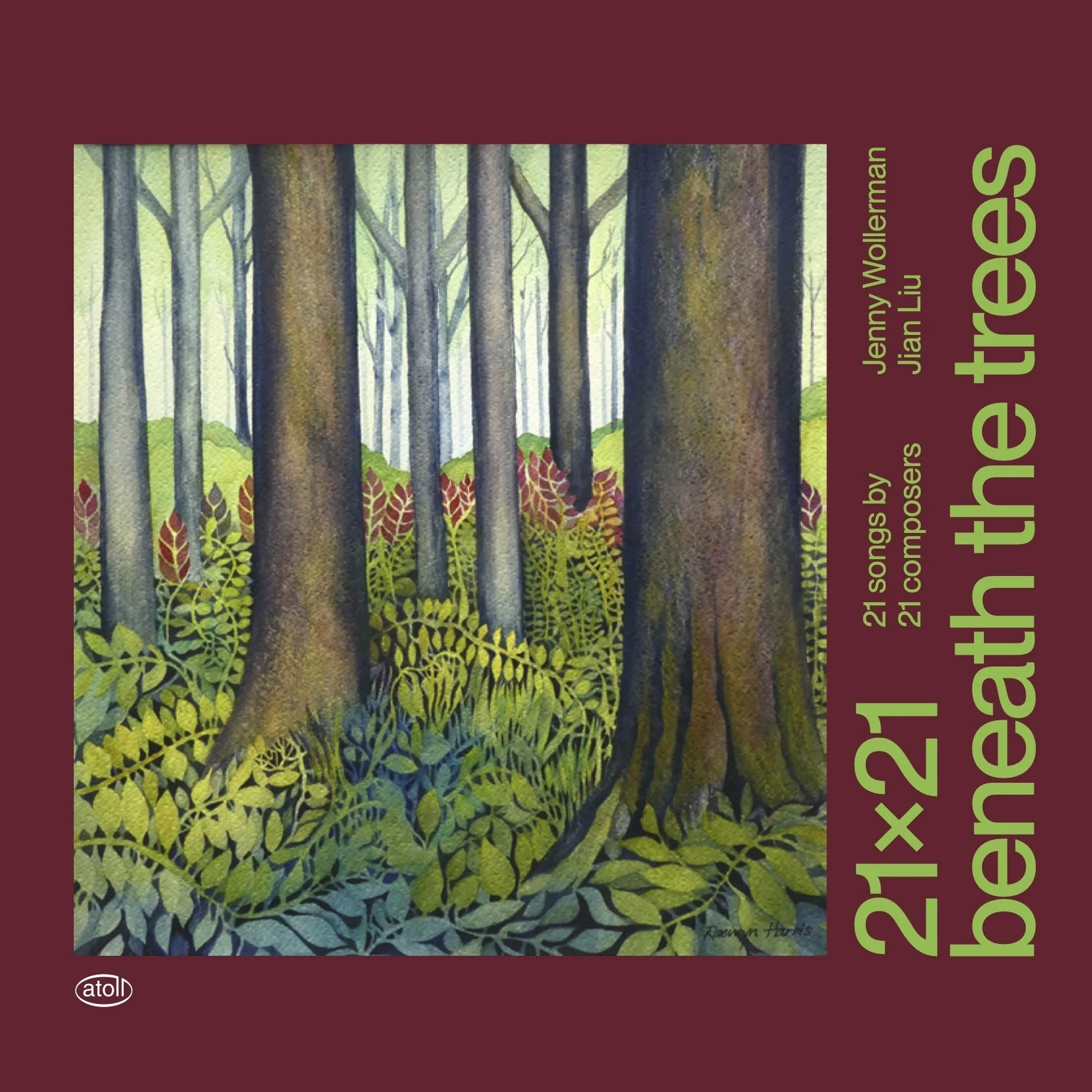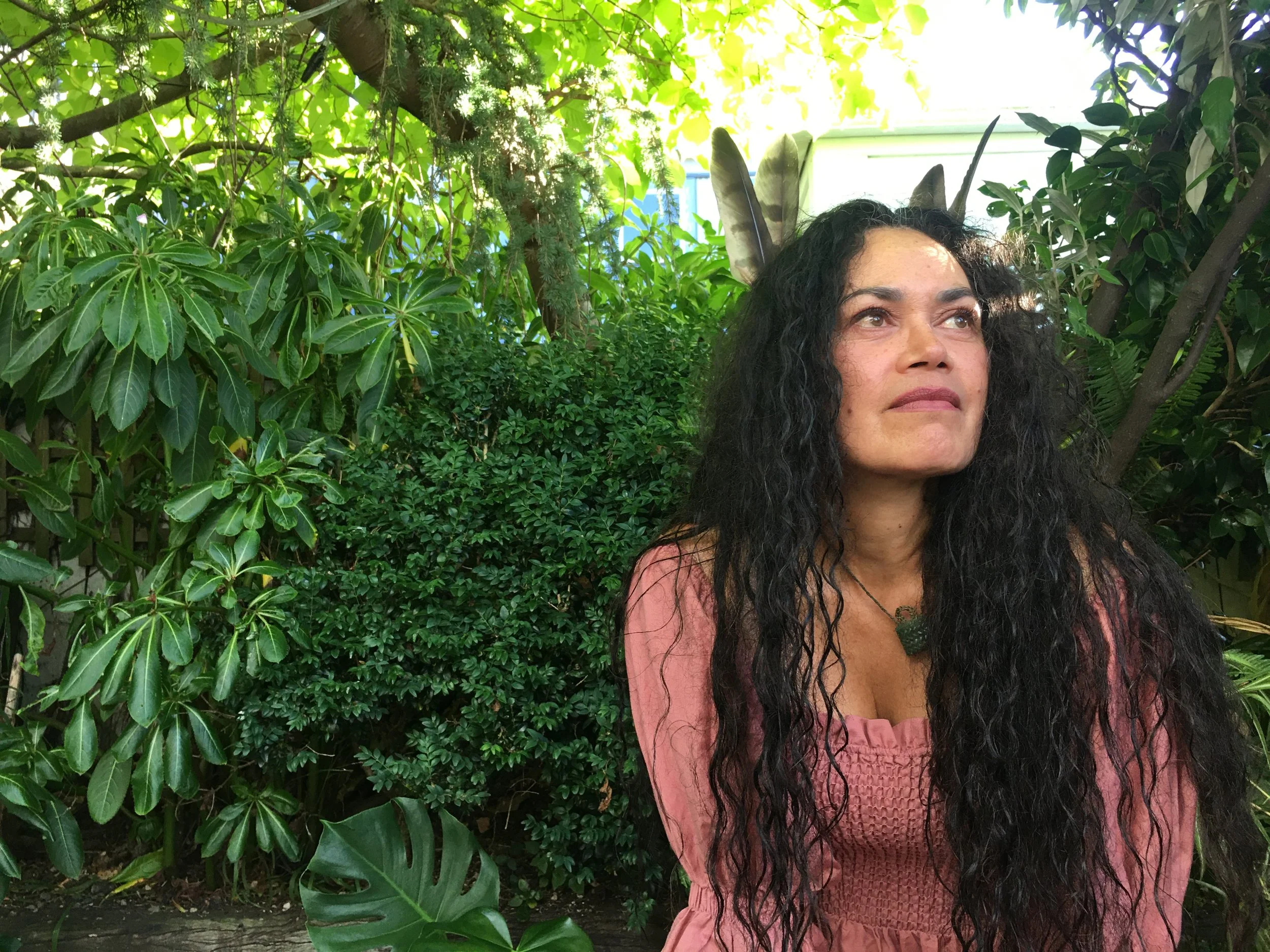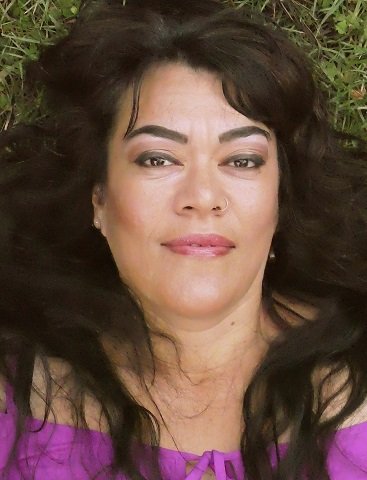Beneath the trees: voices of women of Aotearoa
The beautiful, tragic song My Sister's Country has the breath-taking impact of a gut-punch. Composer Claire Cowan uses beguilingly simple chords to set Rhian Gallagher’s moving poetry, describing the result as “hymn or ritual; a place of comfort to cradle the weight of the small but heavy words."
The song is one of 21 on a new album, 21 x 21: Beneath the Trees, by 21 women composers of Aotearoa, setting words by our female poets. The listening experience is intense. Cultural worlds, stories, grief and love - these short songs carry enormous emotional freight.
Soprano Jenny Wollerman
…conceived, commissioned and performed the songs of the 21x21 project.
Photo credit: Debbie Rawson
Soprano Jenny Wollerman, who conceived and commissioned the 21 x 21 project, performs the songs with pianist Jian Liu. The album demonstrates the magnitude of women’s expressive ambitions; these are not pretty, feminine songs, though a female, sometimes feminist sensibility is present.
Mere Boynton’s Āio opens the album. The timeless lament is, Boynton says, “a karanga, a call out to the universe to return the divine feminine to wāhine and to Papatūanuku, Earth Mother.” It is followed by Josie Burdon’s simple, heart-wrenching setting of Miriama Gemmell’s powerful poem When I First Asked for My Whakapapa, a personal narrative about the erasure of women from history - “hidden names, forgotten mothers”.
Singer/composer Mere Boynton
…her song Āio is “a karanga, a call out to the universe.”
Sometimes the passions are fierce, sometimes gentle. Celeste Oram set a short poem by Jo Randerson in her song The Power of Moss, using a melismatic line and understated accompaniment. “Right now, it’s not the power of the sword we need,” Randerson says.
Many of our most well-known composers and poets are represented. Fiona Farrell’s poem, Because of the Child, was written for unaccompanied setting by Dame Gillian Whitehead and sung at the launch of Sir Alan Mark’s ‘Wise Response’ movement, proposing that government parties work together to address climate change. The lovely singable vocal line shows off Wollerman’s clarity and strength. The late Jenny McLeod wrote her own words for Nā Kui ki a Tama: Te Pūroto Kōpua (Big Sis to Little Bro: The Deep Dark Pool), an engaging song full of shifting moods.
Dame Gillian Whitehead
…set Fiona Farrell’s poem Because of the Child as an unaccompanied vocal line.
Not all the poets lived to hear the songs their words inspired. Salina Fisher chose If I could land, a poem by Sarah Broom (1972–2013), using piano timbres and vocal sounds to evoke birds in flight. Katherine Mansfield’s Out in the Garden was written in 1917, and composer Helen Bowater captures in her music a wonderful feeling of nostalgia, “out in the windy swinging dark”.
Cultural backgrounds of the composers and poets are as varied as contemporary Aotearoa. Aiono Manu Fa’aea created words and music for her beautiful Ala Mai Moana, which flows like the ocean she addresses. Poet Nina Mingya Powles was born in Aotearoa, has Malaysian Chinese heritage and lives in London. Composer Gemma Peacocke, who set Powles’ Night Train to Anyang, understands expatriate yearnings – as the poem says, “I come from a place full of mountains and volcanoes”. Both artists work in modern idioms, their lyrical expression here beautifully matched.
Composer Gemma Peacocke
…she and poet Nina Mingya Powles express expatriate yearnings.
Two particularly intense songs are held until near the end. New York-based composer Leila Adu-Gilmore, a Ghanaian New Zealander, has used part of Tusiata Avia’s formidable poem Massacre. In a brilliant song full of pain and conflicted feelings, these two Christchurch-raised artists confront Aotearoa’s racism. For Riven, Roma Potiki’s dramatic words inspired Eve de Castro-Robinson’s dark, passionate song, dedicated to her late husband. “I am riven, dispersed.” Arresting percussive piano effects accompany images of death, fire and volcano.
Poet Tusiata Avia
…with composer Leila Adu-Gilmore she confronts Aotearoa’s racism.
Many songs in Beneath the Trees find evocative metaphors in nature, in trees, oceans and birds. The final song moves indoors, a setting by Maria Grenfell of Elizabeth Smither’s witty poem, Listening to the Goldberg Variations. The dreamlike narrative, little hints of Bach in the music and a final Baroque flourish at the piano make a great conclusion to an astonishingly rich album.
Wollerman’s stylistically versatile singing and impeccable diction communicate the collection’s variety, with Liu’s exquisite use of piano sonorities essential to the story-telling. Launched by Atoll in December, alongside a book of scores of the songs published by Wai-te-ata Music Press, Beneath the Trees is an invaluable addition to the canon of New Zealand song.
21x21: Beneath the Trees Jenny Wollerman (soprano) Jian Liu (piano) (Atoll)
Purchase album here. Purchase book of scores here.
A shorter version of this album review was published in the NZ Listener issue 2 March, 2024.






